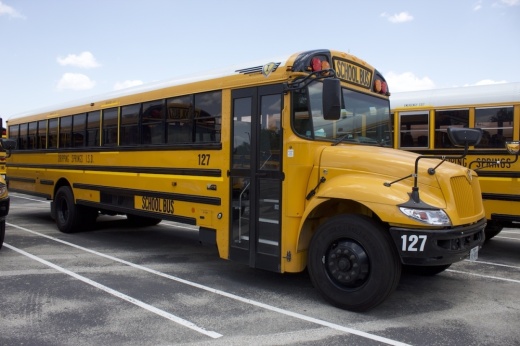Breaking it down
The budget is made up of the following:
- The general fund, which funds daily operations, at a predicted $100.39 million
- The food service fund, which funds the district's meal program and supplements reimbursements from the National School Breakfast and Lunch Program, at a predicted $4.83 million
- The debt service fund, which funds district debts, interests and bonds, at a predicted $18.46 million
- About $51 million toward instruction
- About $4.8 million toward student transportation
- About $3.63 million toward extracurricular activities
- About $3.13 million toward guidance and counseling
- About $1.58 million toward staff development
- About $1.11 million toward security
- An enrollment of 8,900 students, or an enrollment growth from the 2023-24 academic year of 4.24%
- A property value growth of about 5%—typically growth averages about 10%
- An average daily attendance rate of about 95%
- A proposed tax rate of $1.1052 per $100 valuation
- A pay increase of 1% for all staff, approved by the board May 20
- Board policy prohibiting the adoption of a shortfall exceeding 2% of projected revenues
- About $9.46 million of the general fund to go toward recapture, or property tax revenues the state takes from the district
With over a $2 million shortfall, DSISD officials are not proposing many changes to the compensation plan for FY 2024-25 from the previous fiscal year.
“I applaud the administration for finding a way in a difficult budget forecast for next year to continue to move the needle on compensation increases for our staff,” board member Rob McClelland said. “We know we have more work to do, but at the same time a lot of that is based on two key constraints, and that is the student allotment being where it is, and the millions and millions of dollars leaving our district to go back to the state of Texas.”
Put in perspective
DSISD is not alone in taking on a shortfall this upcoming fiscal year. Neighboring district Austin ISD predicts to take on a $59 million shortfall for FY 2024-25.
Some financial strains that impacted DSISD’s budget this fiscal year include:
- House Bill 3, passed during the 88th legislative session, requires the placement of one armed security officer at every campus, incurring more costs to the district.
- A loss of about $500,000 promised in Medicaid reimbursements for special education students through the state's School Health and Related Services program.
- The basic student allotment—the amount school districts receive from the state based on student enrollment and attendance—has not increased since 2019 despite inflation.
- Property values are growing at a slower rate than expected due to Senate Bill 2, passed during the 88th legislative session.
District officials project they will continue to face budgets with shortfalls but said they should be able to sustain these through FY 2026-27 due to fund balance levels.
The board of trustees will listen to public comment on the budget and proposed tax rate June 24 before passing the FY 2024-25 budget.
For more information, visit www.dsisdtx.us.





